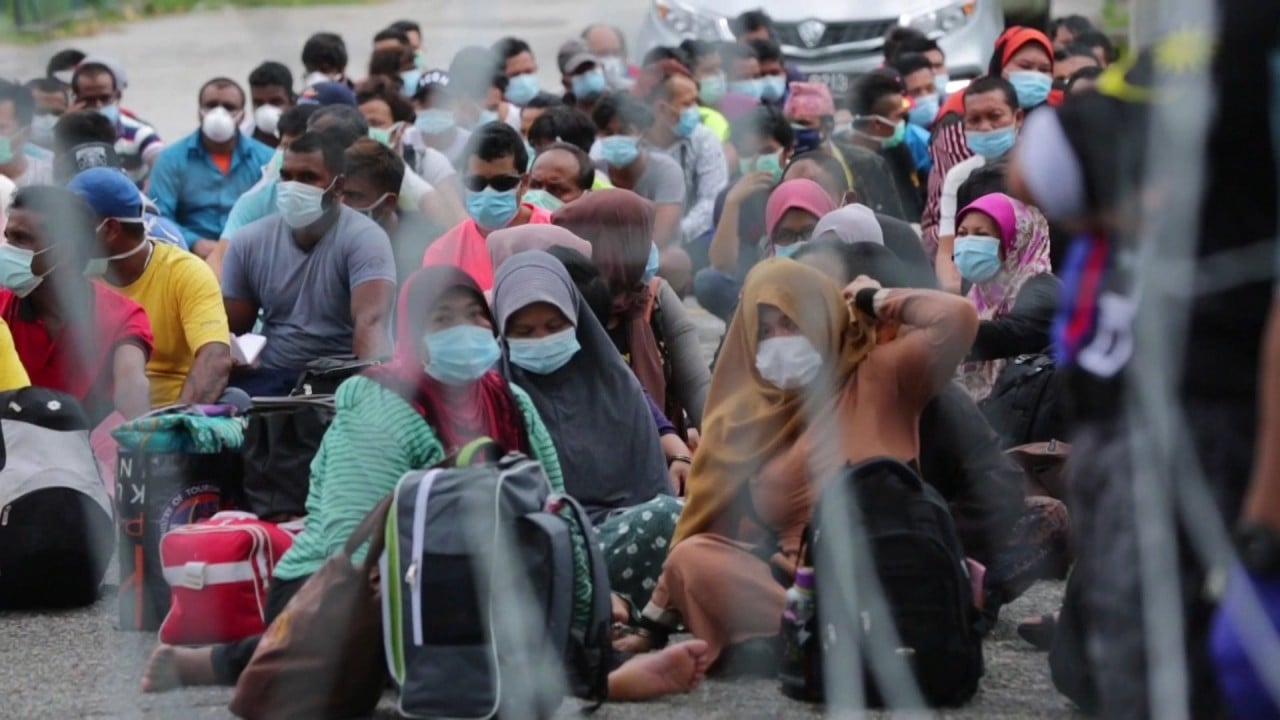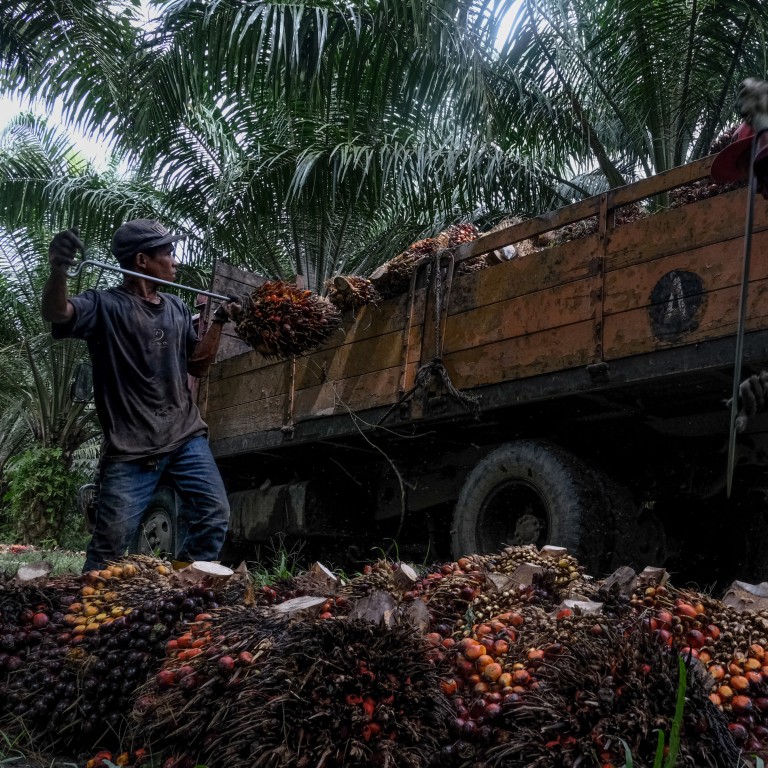
Malaysia’s track record on labour rights under scrutiny as investors prioritise ESG in supply chains
- Goods from Sime Darby and FGV Holdings have already been banned by US; Canada banned Supermax Corp on Tuesday
- Analysts say Malaysia’s economy could suffer if investors pull out over a lack of business compliance with good environmental, social and governance practices
The A-listers sanctioned by Washington include Sime Darby and FGV Holdings, among the world’s biggest palm oil producers, with other buyers reportedly blocking them from their own supply chains as well.
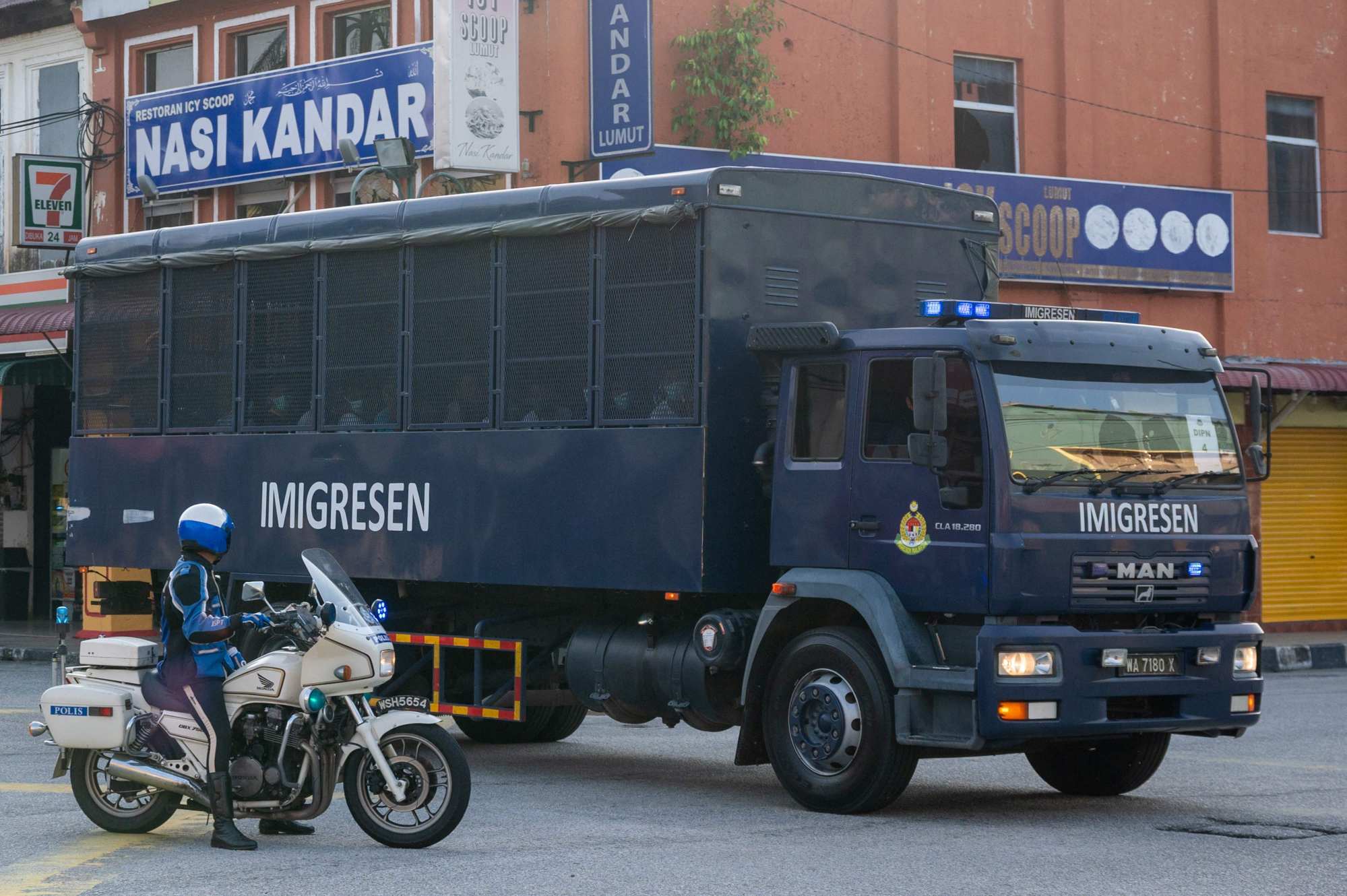
Top Glove, the world’s largest medical glove maker was banned by the US in July 2020 over accusations of migrant worker abuse. The North American market accounted for 22 per cent of Top Glove’s total sales volume, Reuters reported in September, when the ban was lifted after the company improved working and living conditions for employees.
On Tuesday, Canada terminated its sourcing contract with Malaysian glove maker Supermax Corp following allegations about forced labour, said the country’s public services and procurement department.
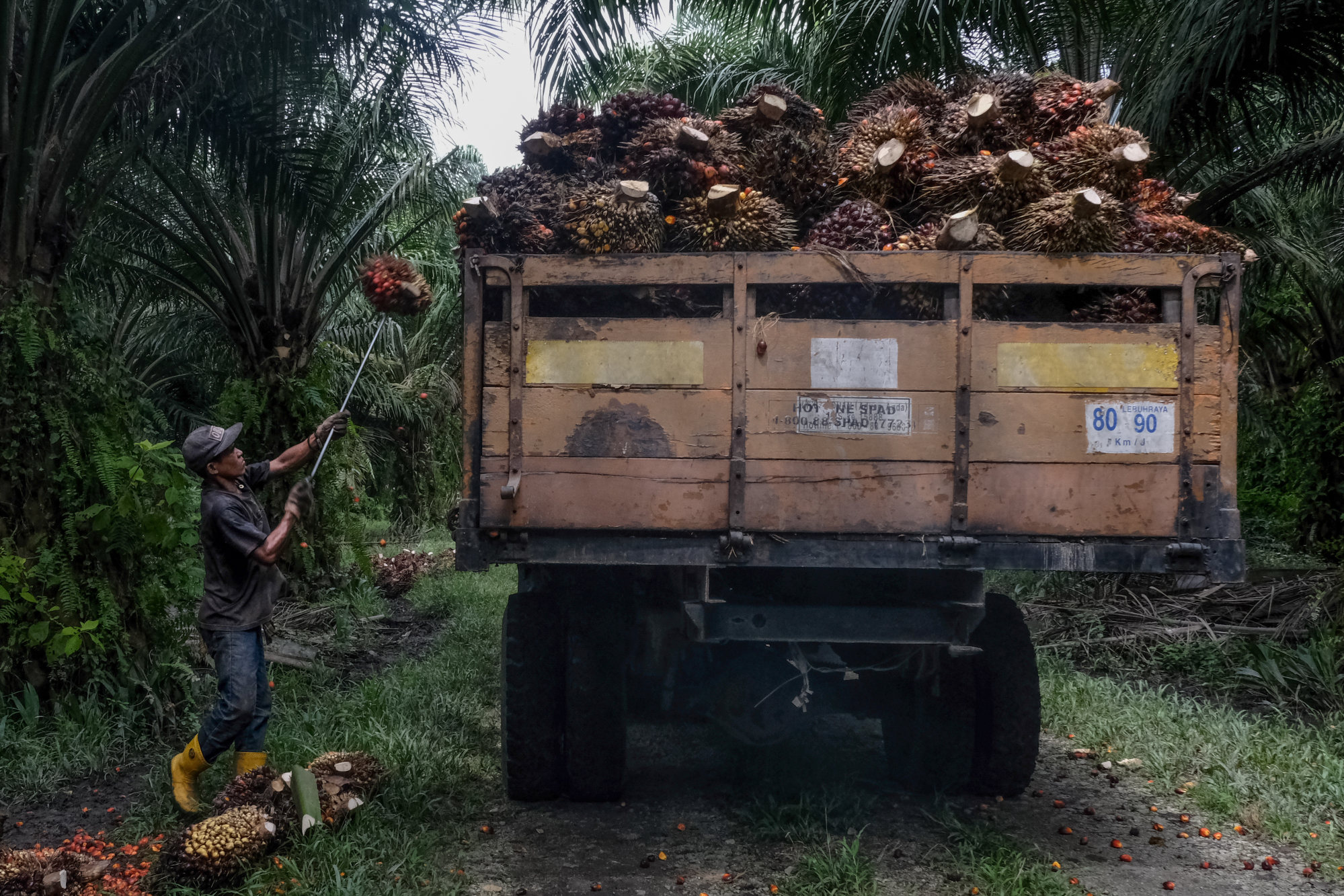
Such accusations have surfaced in recent times in part due to advocacy from labour and civil society groups, leading analysts to warn that Malaysia’s reputation as a global production base and investment destination could take a hit.
Allegations can also affect the stock market as these days more international investors are prioritising a firm’s compliance with environmental, social and governance (ESG) guidelines for their operations.
Keener on compliance
Caroline Le Meaux, Head of ESG research, engagement, and voting policy of European asset manager Amundi, said the pandemic had served as an accelerator for “responsible investment” and this was clear from movements in the financial markets.
Why rising labour abuse charges are a risk to Malaysia’s export-led economy
Companies with the best ESG ratings tend to see a higher volume of shares traded, showing that investors were more “aware of the ESG implications of their investments”.
“While this is no guarantee of future strength, the clear recent outperformance of ESG best-in-class stocks both in the US and in Europe should prompt more companies to integrate ESG in their models and heighten interest in ESG criteria,” said Le Meaux. Amundi has 100 million clients and currently manages more than US$1.8 trillion of assets.
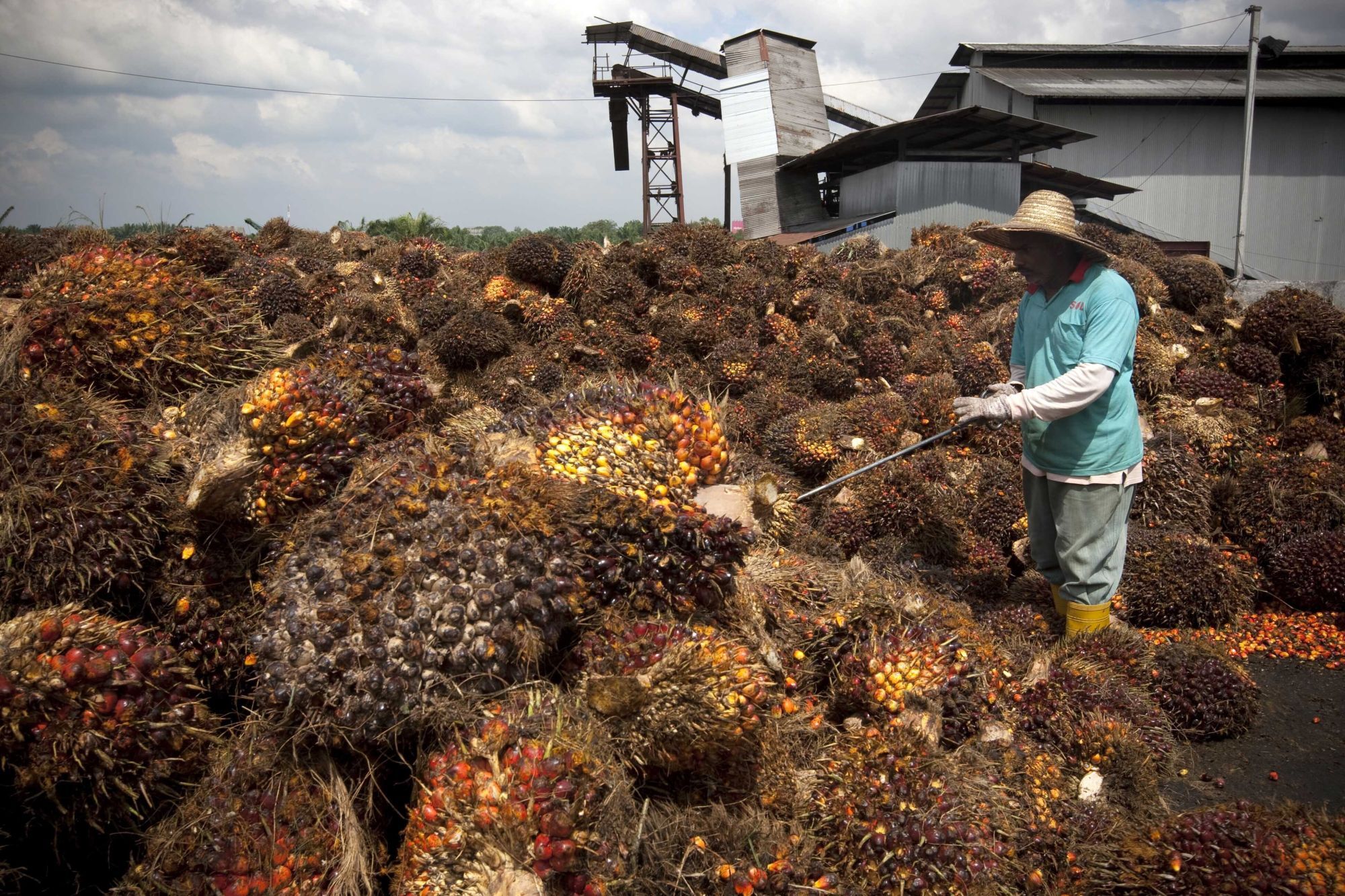
Yeah Kim Leng, an economics professor at Malaysia’s Sunway University, said Malaysia, as one of the world’s top 20 exporting countries – it also accounts for 13 per cent of the world’s chip testing and packaging for semiconductors – should pay close attention to negative spillover effects from the ban.
The US ban casts a negative light on the Malaysian government’s inability to prevent such abuses by large and supposedly reputable firms, said Yeah.
It would be especially harmful if European countries were to emulate the US in trying to stop labour abuses and other breaches given the widening global adoption of ESG ratings and sustainability practices among major multinational companies, he added.
In terms of direct losses by companies who faced bans, these could be in the “hundreds of millions” although actual losses could be lower if the goods were diverted to other markets, said Yeah.
No visible dent – yet
So far, despite the bans, there has been no visible dent in Malaysia’s total exports to the US, which rose to US$25.9 billion in 2020, up from US$23.1 billion the previous year.
In the first 10 months of 2021, total exports to the US rose 22.6 per cent to US$27.8 billion owing to more items including rubber products, electrical and electronic items, metals, machinery and equipment being shipped.
The long term impact on Malaysia’s exports to the US is “more concerning given its huge market and strong purchasing power,” said Yeah.
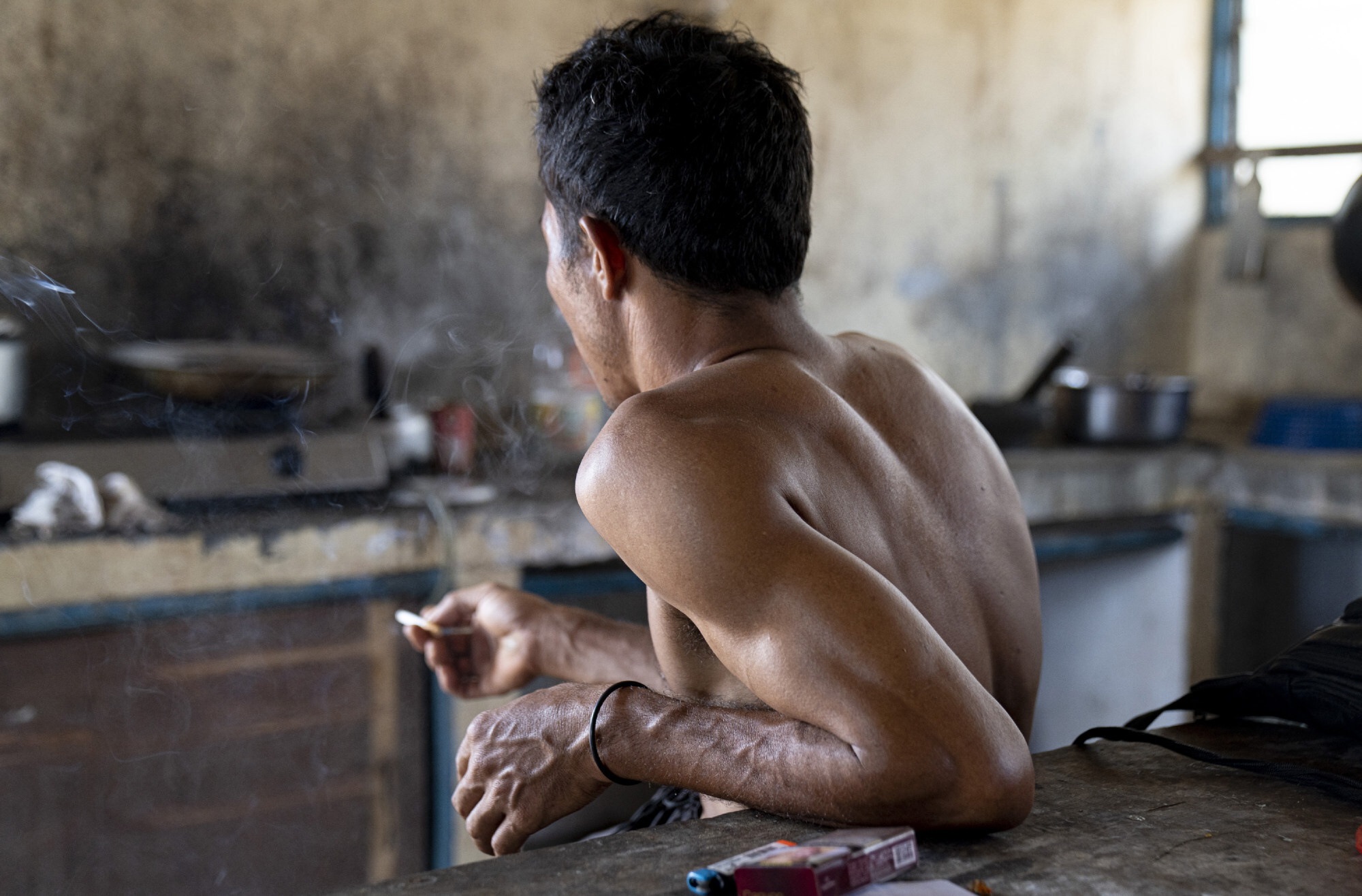
“Reputation loss and a gradual shift in production orders out of Malaysia to other countries cannot be ruled out if the ESG risks are not addressed by Malaysian companies,” he added.
Independent migrant worker rights specialist Andy Hall has also worked hard to highlight the poor working and living conditions of migrant workers in Malaysia, beginning in 2018 with a forced labour mapping exercise about the electronics industry.
“I focused on Malaysia as it’s the worst migrant situation I have ever experienced, anywhere in the world”
He has submitted information to major law enforcement agencies in North America alleging forced labour in several Malaysian manufacturers.
“I focused on Malaysia as it’s the worst migrant situation I have ever experienced, anywhere in the world,” he said.
At least 11 drown as boat carrying Indonesian migrants sinks off Malaysia
Such views are not lost on many bosses. In September Bursa Malaysia chairman Abdul Wahid Omar, also chairperson of the Economic Club of Kuala Lumpur Advisory Council, said: “In line with global commitment towards sustainability, many global businesses will exclude companies that are accused of engaging in forced labour practices and modern slavery from the supply chain.”
Millions of foreign workers
Malaysia, a country of 32 million people, has around 2 million documented foreign workers with another estimated 2 million undocumented. Many come from Indonesia, Bangladesh and Nepal, according to the International Organisation for Migration.
Migrants make up more than 14 per cent of the country’s population, it said.
At the end of 2021, Malaysia’s Human Resources Minister Saravanan Murugan launched a national action plan to eliminate forced labour. In 2020, after visiting a glove factory, he said some companies engaged in “modern slavery” and said living conditions for workers in British-owned plantations before independence were better.
He highlighted the dangers of such cramped environments, saying should a fire break out, the workers might not be able to get to safety quickly enough.
“The issue of poor labour conditions has been increasingly used since the 1990s as unions from the Western countries sought to protect their own workers by preventing a race to the bottom on labour issues,” said Rasiah.
He said he did not agree with broad claims of slavery but acknowledged reports that showed foreign workers were “being subjected to relatively poor working conditions”.
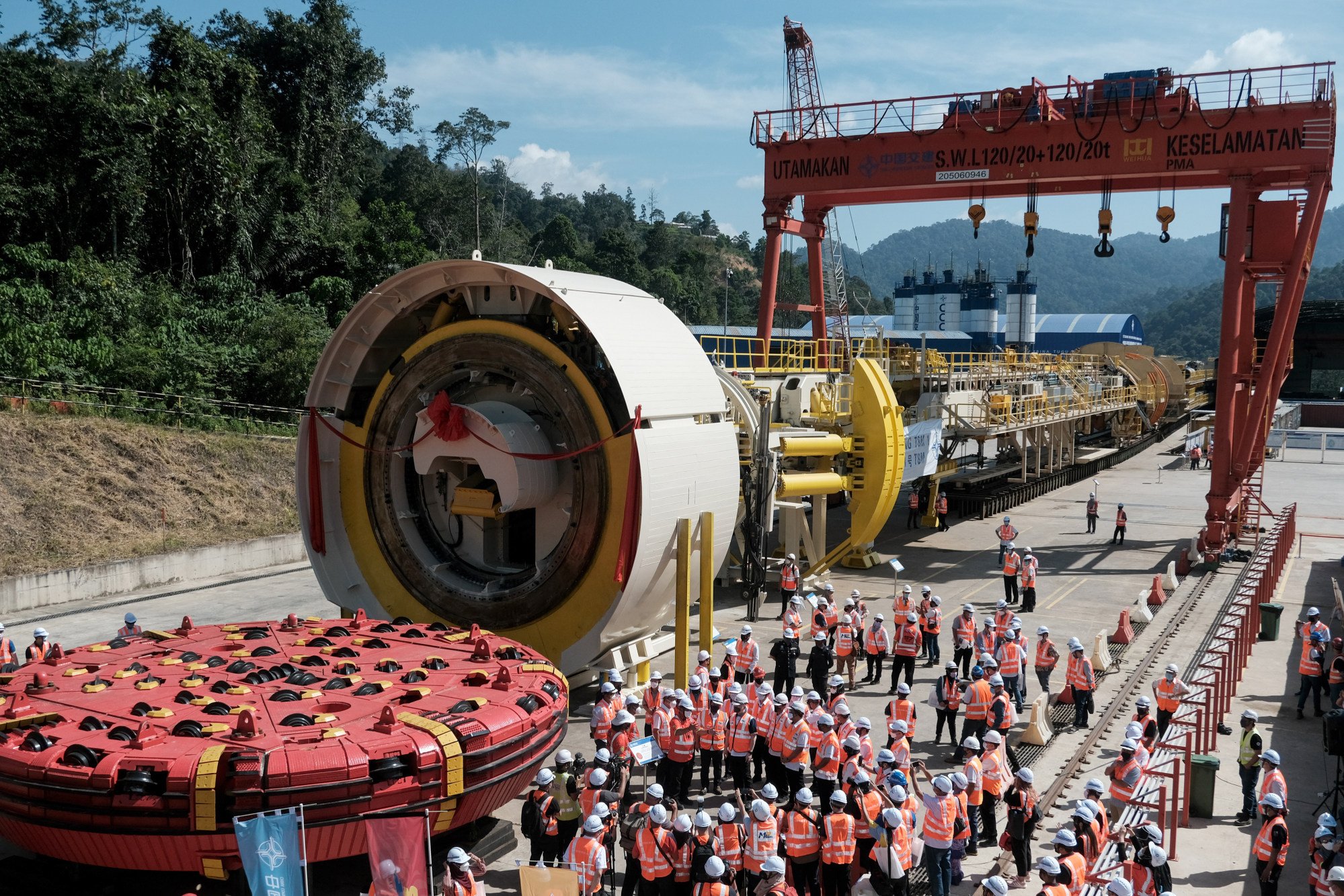
He said Malaysia had distributed booklets outlining good labour practices. Most companies adhere to them, he maintained, but the “few companies that violate such regulations should tighten controls to ensure that such practises are honoured”.
Despite the bans, Malaysia has continued to enjoy rising current account surpluses (exporting a greater value of goods and services than it imports) spearheaded by exports of personal protective equipment (PPE) during the pandemic including gloves, masks, and ventilators.
Rasiah said foreign direct investment (FDI) into Malaysia was impeded more by “restrictive religious encroachment into politics” and political instability than labour issues.
“While Islamic laws are already being implemented in Kelantan, Terengganu and Kedah states, there have been attempts by members of the current cabinet to extend it and impose Islamic laws all over the country.”
Malaysia aims to become hub for regional start-ups and digital investments
Such attempts were not attractive to foreign investors, said Rasiah, adding that Indonesia was attracting more FDI than Malaysia even though the latter had better infrastructure and was more focused on pursuing more environmentally friendly practices.
Sunway’s Yeah said enforcement against those that did not comply with labour laws should be stepped up.
“Importantly, firms need to focus on remedying shortfalls in their labour practices and, importantly, spend more on workers’ housing and welfare.”
FGV Holdings, which was banned by the US in October 2020, one of five Malaysian firms currently banned, said it was fully committed to improving labour standards and will take all necessary steps to get the ban lifted.
The company said it has commissioned an independent assessment of its labour practices. Sime Darby Plantation said it has appointed a consultancy to evaluate its labour practices, reported Bloomberg.
A wake-up call?
Hall, the independent migrant worker rights specialist, said Malaysian companies should view the action taken by the US as a wake-up call and a chance to take remedial action.
Recruitment fees into Malaysia are some of the highest in the world, he said.
Someone from Myanmar who wants to work in Thailand pays an average cost of US$200-US$600 “while a Myanmar worker coming to Malaysia fee is more like US$800 to US$1,500,” said Hall.
One-year-old migrant boy ‘crosses Mediterranean alone’
Corruption has also given rise to worker abuses, where migrant workers pay huge sums of money to recruitment agents only to arrive in Malaysia to find themselves undocumented and end up becoming illegal.
The huge sums paid to agents also means many workers end up trapped in debt, said Hall.
He said in the past two years there have been some improvements following sanctions from the US, including Malaysian companies reimbursing around US$150 million in recruitment fees to migrant workers.
The living conditions of migrant workers in large companies like Top Glove have also improved, said Hall.


